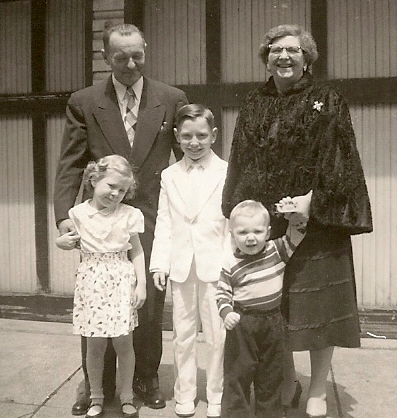|
God must be punishing me or maybe cutting my Purgatory time: I went to my usual 5 PM Mass last night and discovered that for the second week in a row this particular Mass was a First Communion Mass. I am used to one a year—I call it my Easter Duty—but two in one year is cruel and unusual punishment. Not only does my stomach turn to knots at the liturgical and catechetical missteps of such celebrations, but the normal human foibles of mass gatherings seem magnified. My wife was a lector for this Mass so again I had a pretty good view of the proceedings.
I recently entered a very interesting correspondence with a professor from Seton Hill University, Timothy Gabrielli, the author of Confirmation: How a Sacrament of God's Grace Became All about Us. (Our exchanges are public, on the book’s Amazon page.) Ironically, I had been critical of certain aspects of his book, and he replied very gracefully to my points. In subsequent follow-up he quoted from a talk he had delivered to the clergy of Richmond, Virginia, on the celebration of the Sacrament of Confirmation, another youthful initiation sacrament. One of many points he made was this one, in hypothetical advice to confirmands: This is a special celebration of the Church, of which you are an integral part. It's not all about you. I fear that the present American style of First Communion reinforces the very things we worry about in American culture, “it’s all about me.” While it is true that the occasion of First Eucharist is very significant, Gabrielli advises quite wisely that sacraments of initiation are the first steps in a lifelong process, and that the emotions and experiences of the candidates are secondary to the bigger reality of the parish’s public and regular celebration of the Eucharist, and even to the candidate’s own spiritual journey. I am pleased to see that the venerable works of Marshall McLuhan from the 1960’s are still best sellers. McLuhan coined the famous phrase, “the medium is the message.” In an age when television was exploding McLuhan understood that eventually a culture can mistake a reality for how that reality is presented in its media, its public forum. The Kennedy-Nixon televised debates of 1960 are the textbook example: essentially, TV made Jack Kennedy look equal to a sitting vice-president of the United States before Kennedy ever opened his mouth. McLuhan understood what our best liturgical theologians have been telling us for years: the gesture of the sacrament conveys our understanding of the sacrament. The outward and the inward reality must coalesce. If McLuhan were alive today he would probably draw some interesting conclusions of the medium of most first communion celebrations: that the focus of attention is alternately the individual child and his classmates, that this communion is somehow unique from any others the child may receive during a lifetime, that special distinctive clothing is required so that the candidate is distinguished from the congregation, and that the child visually and actually separates from the family of origin at the highlight moment, receiving the communion. I understand that I have opened far too many theological doors of discussion for us to tackle today. But if I had a say in the matter, I would make one major change in the rite: at the time of reception of the Eucharist, have the parents lead the child to communion and have the family receive together. Do you see the visual teaching shift of this one change in the medium? A child is being led by “the primary catechists of the faith” into an adult church. Would that kind of formula gain wholesale acceptance? I wouldn’t hold my breath, because there is another visual that I couldn’t help but observe yesterday—a large number of adults in the congregation did not receive the Eucharist, for reasons I can only guess. Of course, over the years as a pastor I had to deal with “the nostalgia lobby” on all matters of First Communion, too. More fodder for another time. It may be that with the Synod of the Family on the horizon, and what I am starting to hear about “family faith based formation,” there may be changes down the road. But I believe it was McLuhan who said “the role of the future is to make trouble.” So watch out.
0 Comments
Leave a Reply. |
On My Mind. Archives
July 2024
|

 RSS Feed
RSS Feed